For many of us, voice assistants like Alexa and Siri are synonymous with artificial intelligence. We see futuristic technology in science fiction films and television shows. But the reality is that AI is starting to shape the world around us in ways that many of us aren’t even aware of, and this is true everywhere, but it’s especially true in India, where there is a lot of development happening right now specifically in the AI space, with startups developing novel AI-based solutions.
They’re using this new technology to solve problems that would have been impossible to solve just a few years ago, and in this article, we’ll talk about the top 10 Indian AI startups.
Top 10 Indian AI Startups
10. Staqu Technologies
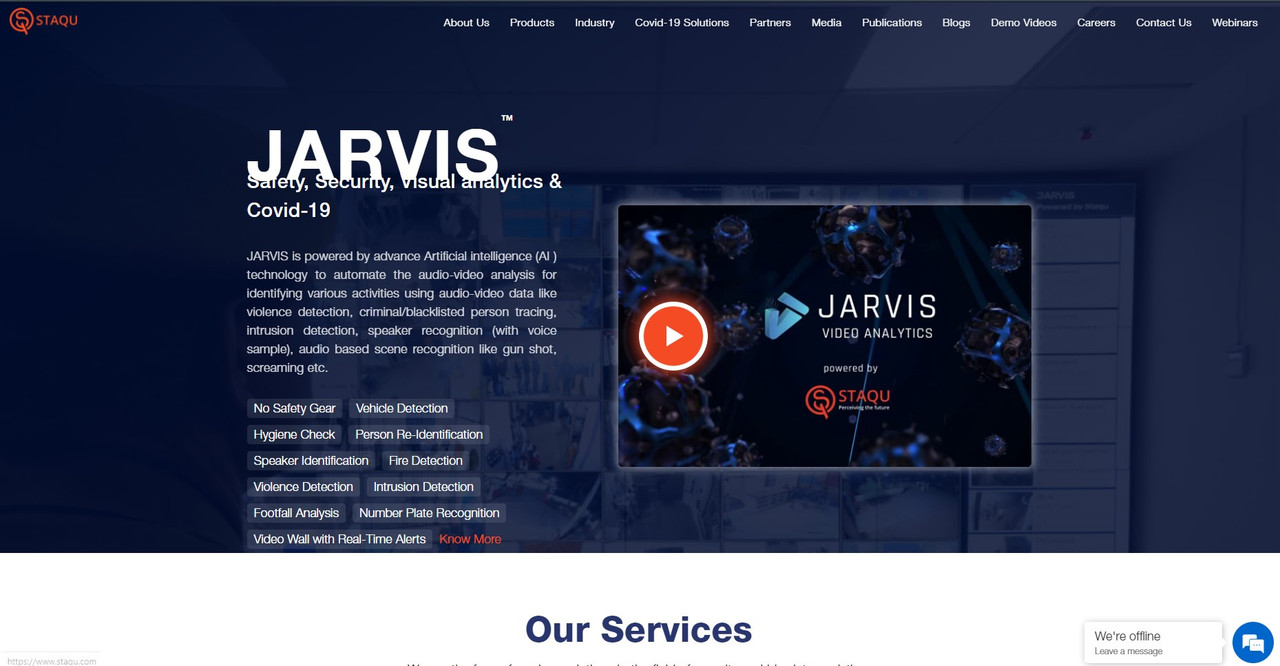
Staqu Technologies is a Gurugram-based AI-powered audio and video analytics startup.
Staqu Technologies was Founded by Anurag Saini, Atul Rai, Chetan Rexwal, and Pankaj Kumar Sharma in 2015
JARVIS, which stands for Joint AI Research For Video Instances and Streams, is Staqu Technologies’ AI-powered flagship product for monitoring and identifying criminal behavior through CCTV cameras.
JARVIS identifies people who are involved in criminal activities and reports them to the police in real-time. See, India recorded 4.2 million cognizable crimes in 2020, which are crimes for which you can be arrested.
That’s over 11,000 crimes per day, with 80 of them being murders, but India only has one police officer for every 641 people, and its resources are stretched thin, so an AI-powered service like Staqu can help fill in the gaps.
The lessons learned while serving in the police force are now being used by the startup in the private sector, assisting businesses in ensuring that their employees follow safety and security protocols.
You May Also Like
- Top Indian Startups To Watch in 2022
- Why WeWork Failed? $40 Billion Startup Failure | Startup Failure Business Case Study
- Top 10 Richest Women in The World
9. TartanSense
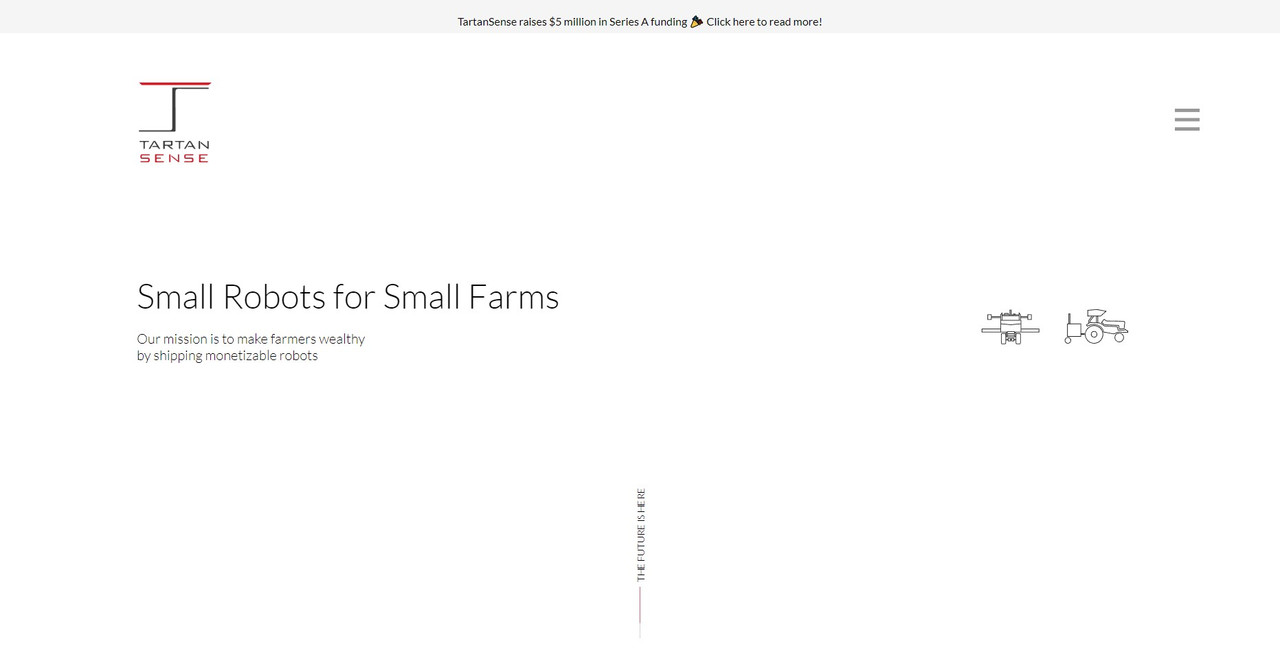
TartanSense is a Bengaluru-based agritech startup that’s building an AI-powered farming robots startup.
TartanSense was founded in 2015 by Jaisimha Rao, a former Vice President of Blackrock in New York. TartanSense’s flagship product is the BrijBot, a precision crop spraying robot.
BrijBot drives autonomously through rows of crops, assessing each individual plant with computer vision to see if pesticides are required. If BrijBot determines that the answer is yes, it can spray that one specific plant without affecting any nearby plants, which is a different approach than what farmers typically do without BrijBot. Without BrijBot, many farmers are forced to blanket spray.
BrijBot drives autonomously through rows of crops, assessing each individual plant with computer vision to see if pesticides are required. If BrijBot determines that the answer is yes, it can spray that one specific plant without affecting any nearby plants, which is a different approach than what farmers typically do without BrijBot. Without BrijBot, many farmers are forced to blanket spray.
They simply spray pesticides on all of their crops to increase yield, but don’t pesticides cost money? Doesn’t BrijBot cost money as well? Of course, the answer is yes, but TartanSense does not sell individual robots. Instead, they rent them to farmers for $1,500 ($20.42) per acre, and these robots can run for eight hours without human intervention on a single charge. TartanSense’s investors have so far invested $7 million (51.4 crores) in the company.
8. Signzy
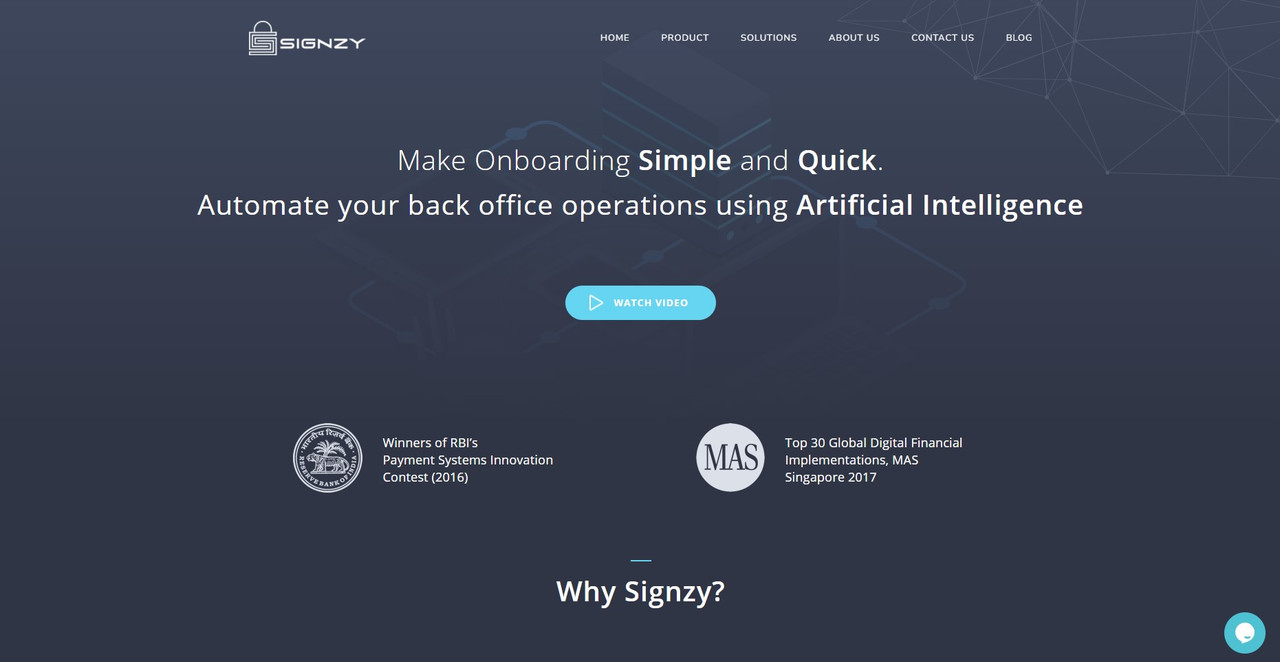
Signzy is a Bengaluru-based AI-powered digital onboarding solution.
Ankit Ratan, Ankur Pandey, and Arpit Ratan founded Signzy in 2015 to help banks and other financial institutions onboard new customers quickly and easily using AI-powered video KYC.
Now, KYC verification and approval are typically handled by humans, which means that the customer onboarding process could take several hours or days, which is obviously inconvenient.
Signzy, on the other hand, extracts information from prospective customers’ IDs in real-time and cross-references it against the customer’s face and government databases. Signzy’s computer vision also detects ID forgeries and anomalies, which the human eye frequently overlooks.
Signzy is now used by over a hundred major banks, insurance companies, and asset management firms to onboard over 150,000 users (1.5 lakh users) per month, which is why their investors have been happy to invest $12.6 million (92.6 crores) in the startup so far.
7. Mad Street Den

Mad Street Den is a California-based AI-powered experience management startup.
Mad Street Den was founded in 2013 by husband-and-wife team Anand Chandrasekaran and Ashwini Asokan, as well as Costa Colbert. Mad Street Den was founded in Chennai, and all R&D was done there.
When it came time to launch their first product, they relocated their headquarters to the United States in 2016 and launched Vue.ai, which tracks a shopper’s behavior, including what colors or styles they appear to be interested in, and how long they spend looking at a specific item on an e-commerce app or website, and then uses that data to recommend products that the customer might like.
Since 2016, they’ve added a slew of new value-added features to Vue.ai, making it a compelling proposition for fashion brands like Diesel, Nordstrom, and Tata Cliq, among others.
Mad Street Den then launched blox.ai in June 2021, which assists businesses in becoming AI-native by providing tools to create and maintain data and customer experiences, as well as automate business processes. Customers like Stanza Living, Trell, Cars24, and Tata have reacted positively to this new offering. Mad Street Den’s investors have so far invested $21.2 million (92.6 crores) in the company.
6. Safe Security
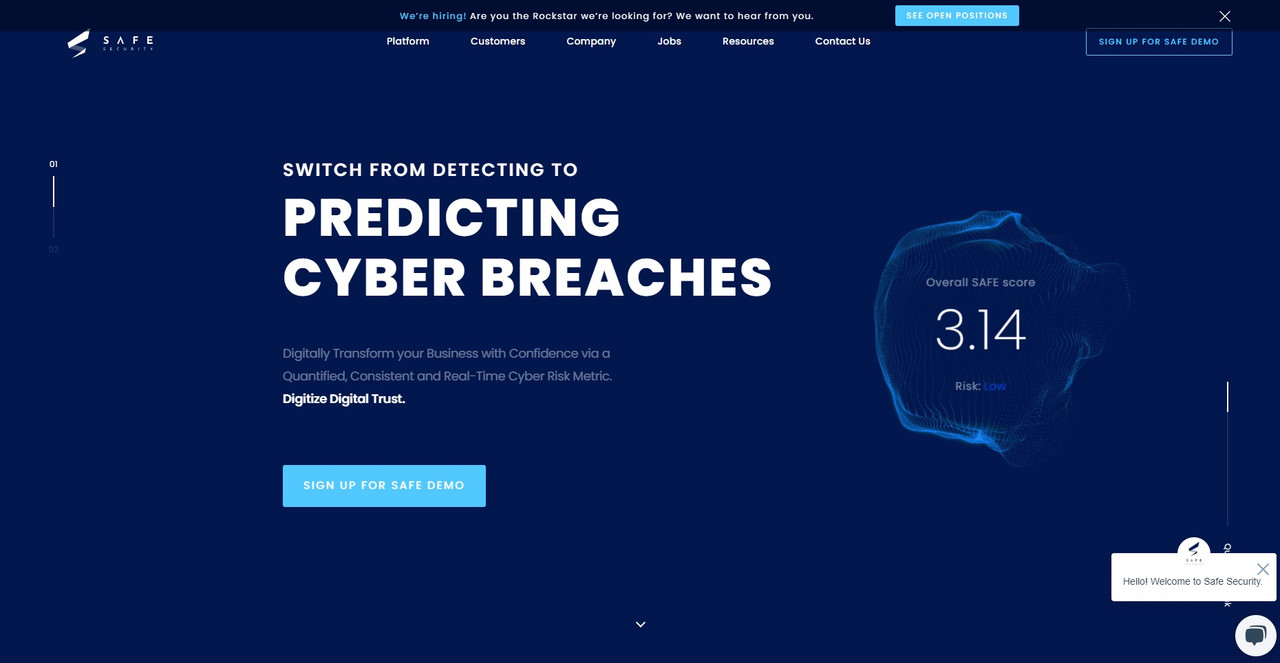
Safe Security is a California-based startup that began its journey in India this time in the cybersecurity space.
Safe Security was founded in 2012 by Rahul Tyagi, Saket Modi, and Vidit Baxi as Lucideus at IIT Bombay, with the goal of assisting businesses in predicting and preventing cyberattacks.
In 2019, they relocated their headquarters from India to the United States and developed the SAFE framework (Security Assessment Framework for Enterprises).
This AI-powered framework assigns a score between 0 and 5 to each person, piece of technology, and policy in the enterprise, with 0 indicating that it is not safe and 5 indicating that it is completely safe.
Safe Security can use this system to determine how secure a company is at both the micro and macro levels, from a single individual to a small team, a department, and, of course, the entire company, and then use that information to improve security.
They are able to advise the company on how to protect itself, which is precisely what their customers are doing. Safe Security has raised $49.2 million (362.4 crores) from investors so far, and while they haven’t revealed their valuation, Saket Modi has stated that they are a unicorn.
5. Yellow.ai

Yellow.ai is a Bengaluru-based conversational AI startup.
Yellow.ai, formerly known as Yellow Messenger, was founded in 2016 by Anik Das, Jaya Kishore Reddy, Raghu Ravinutala, and Rashid Khan.
Instead of providing custom solutions on a case-by-case basis, they provide chatbots and voice bots as a service to businesses looking to automate their customer experience.
Instead, Yellow.ai provides a scalable no-code platform that allows customers to build their own chatbots. These chatbots are trained and improved using machine learning and archived conversations.
In June of 2021, yellow.ai began offering voice bots to its customers, and today, more than 700 businesses are using AI-powered solutions to automate their customer experiences in more than 100 languages. Their investors have so far invested $102.2 million (752.7 crores) in the company.
4. Niramai

Niramai is a Bengaluru-based AI-powered health tech startup.
Geetha Manjunath and Nidhi Mathur founded Niramai in 2016, following the death of Geetha’s cousin to breast cancer in 2015.
This experience made her realize how serious breast cancer is, despite the fact that it is completely curable if detected early. In India, one woman is diagnosed with breast cancer every 4 minutes, and one dies every 13 minutes. The sad thing is that many of these deaths could be avoided with a simple breast exam.
However, many women dislike the traditional procedure of getting a mammogram because it exposes and compresses that part of their body.
They’re able to provide women with a fully clothed, no-touch, radiation-free thermal screening solution that detects breast cancer using an AI-powered diagnostic engine called Thermalytix. This engine is completely automated, and it only takes a few minutes to learn how to use it. Niramai is now used by more than 70 hospitals and diagnostic centers, and its investors have invested $6.1 million (45 crores) in the company so far.
3. Emotix

Emotix is a Mumbai-based E startup that’s making Ai-powered personal robots for kids.
Emotix was founded in 2014 by Chintan Raikar, Prashant Iyengar, and Sneh Vaswani. Emotix’s robots use computer vision and facial recognition to recognize and remember a child’s face, understand and respond to their behavior, and ultimately engage them in educational conversations.
These conversations, of course, necessitate sophisticated speech recognition AI on the robot’s part, as children’s speech is less coherent than adults’.
Furthermore, The Miko 2, Emotix’s flagship product, can listen and speak in English, Hindi, Arabic, and Spanish, which has helped them attract customers from over 140 countries.
Furthermore, The Miko 2, Emotix’s flagship product, can listen and speak in English, Hindi, Arabic, and Spanish, which has helped them attract customers from over 140 countries. Investors have so far contributed $50.4 million (370.4 crores) to the startup.
2. FarEye

FarEye is a Noida-based Ai-powered delivery management platform.
While studying at Kalinga Institute of Industrial Technology, Gaurav Srivastava, Gautam Kumar, and Kushal Nahata had the idea for FarEye. Between 2005 and 2009, when Indian e-commerce was in its infancy, logistics was a major headache for customers.
You’d get multiple calls from drivers asking for directions, and they’d sometimes give up if they couldn’t find your house. Things only worsened in the years after that, so in 2013, these three founders founded FarEye as a SaaS-based solution to some of the issues they had witnessed.
FarEye now provides a single platform for e-commerce and delivery companies to manage their supply chain and logistics.
Companies can use FarEye to make real-time decisions on how many drivers they need in a given area, the most efficient routes for those drivers to take, and which packages should be bundled together for multiple deliveries in a given area, all using AI-powered algorithms.
FarEye is now used by over 150 companies in 30 countries, and its investors have invested $150.7 million (1110 crores) in the startup so far.
1. GreyOrange
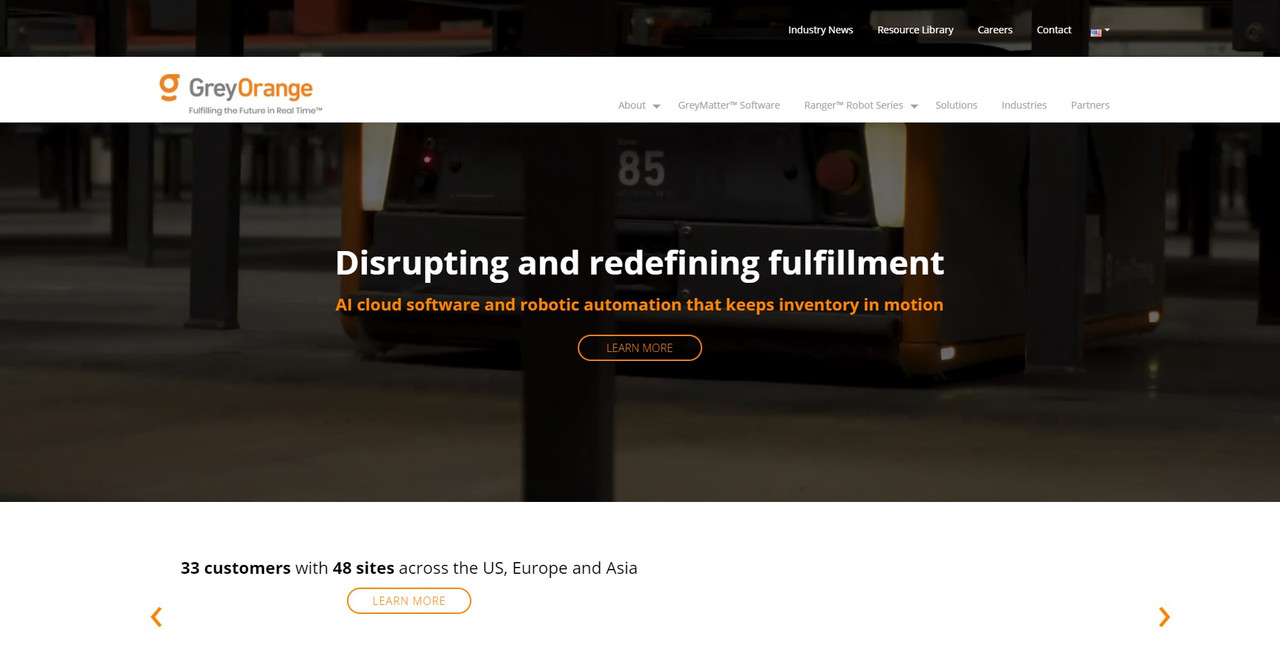
GreyOrange is a Singapore-based robotics startup.
GreyOrange was founded in Gurugram in 2011 by Akash Gupta and Samay Kohli, and its robots are making warehouses around the world more efficient and labor-intensive.
Normally, robots do this by repeating a tightly-controlled, pre-defined task, but GreyOrange’s robots are far more versatile, thanks to their collective AI-powered hive mind, GreyMatter, which allows a variety of different kinds of robots in a warehouse to communicate with one another, collaborate and use their combined knowledge to make group decisions.
Some of these robots pick things up, some of them move items from point A to point B, and some of them do something else entirely, but thanks to AI, they’re all in constant, intelligent communication. GreyOrange’s autonomous robots are used in 48 locations in 48 countries, and the company has raised $170 million (Rs. 1,250 crores) from investors.
There are also reports that GreyOrange is looking to go public in the US through a SPAC at a valuation of $1.5-1.7 billion (11,025-12,495 crores) at the time we were filming this video.











![What is VesWhat iGautam-Bali-Vestige-Founders Vestige - Full Information [2022]tige - Full Information [2022]](https://networth.co.in/wp-content/uploads/2022/01/Gautam-Bali-Vestige-Founder-80x60.webp)
